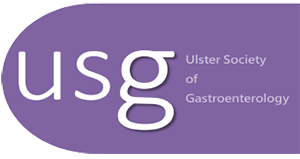Reponse to neo-adjuvant chemotherapy in oesophageal adenocarcinoma is predicted by PD-L1 expression
Authors
Parkes EE, Blayney J, McCarron E, Douglas R, Stevenson L, McManus D, McQuaid S, Arthur K, James J, Salto-Tellez M, Noble F, Underwood TJ, O’Neill R, Fitzgerald RC, Kennedy RD, Turkington RC.Departments / Institutions
Centre for Cancer Research and Cell Biology, Queen’s University Belfast. Belfast Health and Social Care Trust.Publication Date
Autumn 2017Introduction
Mounting evidence supports the role of the immune response in improving response to chemotherapy. Immune checkpoints programmed-death 1 (PD-1) and its ligand PD-L1 downregulate T cell activation characterised by an “exhausted” ineffective tumour immune infiltrate.
Aims
We investigated the role of PD-L1 gene and protein expression, and tumour-infiltrating lymphocytes, in response to neoadjuvant chemotherapy (NAC) in oesophageal adenocarcinoma (OAC).
Methods
Formaline fixed paraffin embedded pre-treatment endoscopic OAC biopsies were obtained for 273 patients, treated with cisplatin-based neoadjuvant chemotherapy followed by surgical resection at 4 UK centres between 2003 and 2014. Transciptional profiling was performed using the Almac Diagnostics Xcel array, and PD-L1 expression levels determined. Response was assessed by tumour regression grade (TRG). Immunohistochemistry for PD-L1 and CD8 was performed in matched post-chemotherapy resection specimens in 135 patients.
Results
High PD-L1 expression in the pre-chemotherapy biopsies was associated with with response to NAC (TRG ≤2; p = 0.023). Stromal and tumoural PD-L1 and CD8 expression were significantly associated (p < 0.001). Positive stromal CD8 expression significantly correlated with pathological response (p = 0.0081). Patients with PD-L1 IHC positivity in tumor cells demonstrated improved relapse-free survival (Hazard Ratio 0.314; 95% CI 0.099-0.997; p=0.049). The combination of PD-L1 and CD8 positivity did not have a stronger effect than PD-L1 expression alone (p = 0.106).
Conclusion
High PD-L1 expression may aid selection of conventional anti-cancer treatment in oesophageal adenocarcinoma. Anti-PD-1 targeted therapy should be considered in esophageal adenocarcinoma and further exploration of potential predictive biomarkers is required.
Latest News
Gastroenterology FK Meeting Provision and Challenges
Posted on: 2nd April 2021Latest Event
There are no up-coming events.E-Publications
Download our latest Documents


